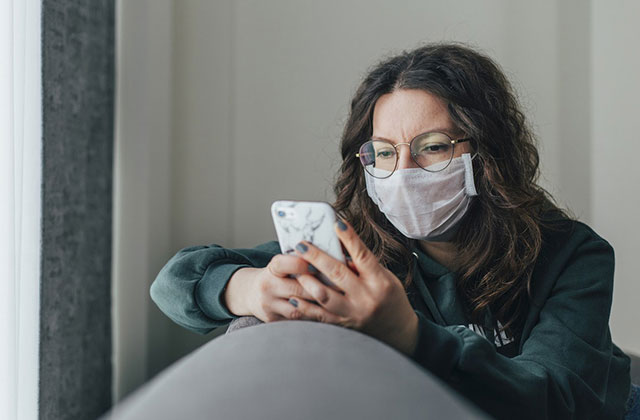For a lot of adults, anxiety can be a normal thing. One can get that sinking feeling in the stomach before doing an important company presentation, while speaking in a class report, before confessing something to a long-time crush, before making that big move from one province to another, or just while watching the night time news. It is something that we regularly experience and eventually overcome.
However, there are instances when anxiety becomes so debilitating that it starts to interfere with your life. Putting simply, an anxiety disorder is a form of unhealthy stress that can induce a state of panic to an individual which can render him or her unable to enjoy typical daily activities or regular interactions.
In Canada, a study conducted in 2013 showed that about three million Canadians, or 11.6% of the population aged 18 years old and above revealed they had an anxiety disorder or a mood disorder. The majority of these affected individuals are found to have sought the help of a health professional in the previous year.
So if anxiety is so normal, how do you know when it is turning into something else? And when should you seek professional help? Here are six signs to consider:
- You get panic attacks in response to a problematic situation.
You have heard that your cholesterol levels are exceeding normal levels. You were advised by family and friends to just do regular exercises and regulate your food, but upon knowing that you have cholesterol issues, you developed shortness of breathing, rapid heartbeats, and almost fainted. Your family rushed you to the emergency room and you were almost sure you just had a heart attack but doctors and nurses said that the episode you had was a panic attack.
Panic attacks are often mistaken as a heart attack. It is typically characterized by chest tightness, palpitations, cold sweats, shaking, a burning or sinking sensation in the stomach, and rapid short breaths. One major difference between the two is that a heart attack usually happens after physical exertion while a panic attack can happen while you are resting. In cases where you have severe anxiety, panic attacks can come as a result of overthinking about the problem at hand, no matter how small, or mulling about extreme consequences that have not happened or will not even happen.
- You catastrophize situations, no matter how simple.
If you have an anxiety disorder, chances are, you think to worry about things that are not even there yet. For example, worrying about newborn clothes and essentials in preparation for the birth of your son is a particularly normal thing to think about as a parent. But thinking about how your son might probably land in jail if you are not careful parents while he still inside the womb is catastrophizing the situation.
People with anxiety disorder usually do two things:
- They think that something bad will happen soon
- They think that if something bad will indeed happen, it would be a terribly awful circumstance.
If these things are frequently running in your mind, it’s time to get yourself checked.
- You cannot fall asleep or properly stay asleep.
If there is one thing severe anxiety is good at doing, it’s keeping you from sleeping at night. Too much stress and worry can worsen sleeping problems, if you have any, or start sleeping problems. The problem with this is that anxiety and sleep are related. Lack of sleep can exacerbate anxiety and too much anxiety can keep you from sleeping. It is a vicious cycle that can be difficult to break. Find a doctor immediately if your nightly worries are interfering with your sleeping time.
- You avoid and procrastinate.
You lost interest in school or work and have made all excuses not to go to the university or office. You avoid birthdays of family and close friends and thank COVID-19 for giving you an excuse not to go. You deactivate social media accounts to withdraw yourself from people who might want to talk to you. You canceled your grocery run for the day because you do not feel like it. You stopped reading your work emails because you are not ready to deal with work-related stuff. If you spend your time procrastinating more than doing something, consider looking for professional help.
- You are becoming drug or alcohol dependent.
An anxiety disorder can sometimes lead individuals to abuse alcohol or substances. How much is moderate alcohol drinking? Experts peg the amount to one alcoholic drink per day for women and two drinks for men. If you are drinking way more than that, you may be compensating for something or drowning your thoughts. Most of the time, the drinks are an effective way to blur your mind, but once you establish tolerance, you will tend to drink more and more until you become too dependent on alcohol. The same is true for drugs or substances.Are you experiencing some or all of these signs? If you do not want to personally go to a walk in clinic Calgary, at least consider booking a consultation with an online psychologist in a virtual clinic. The earlier you get treatment, the better.

